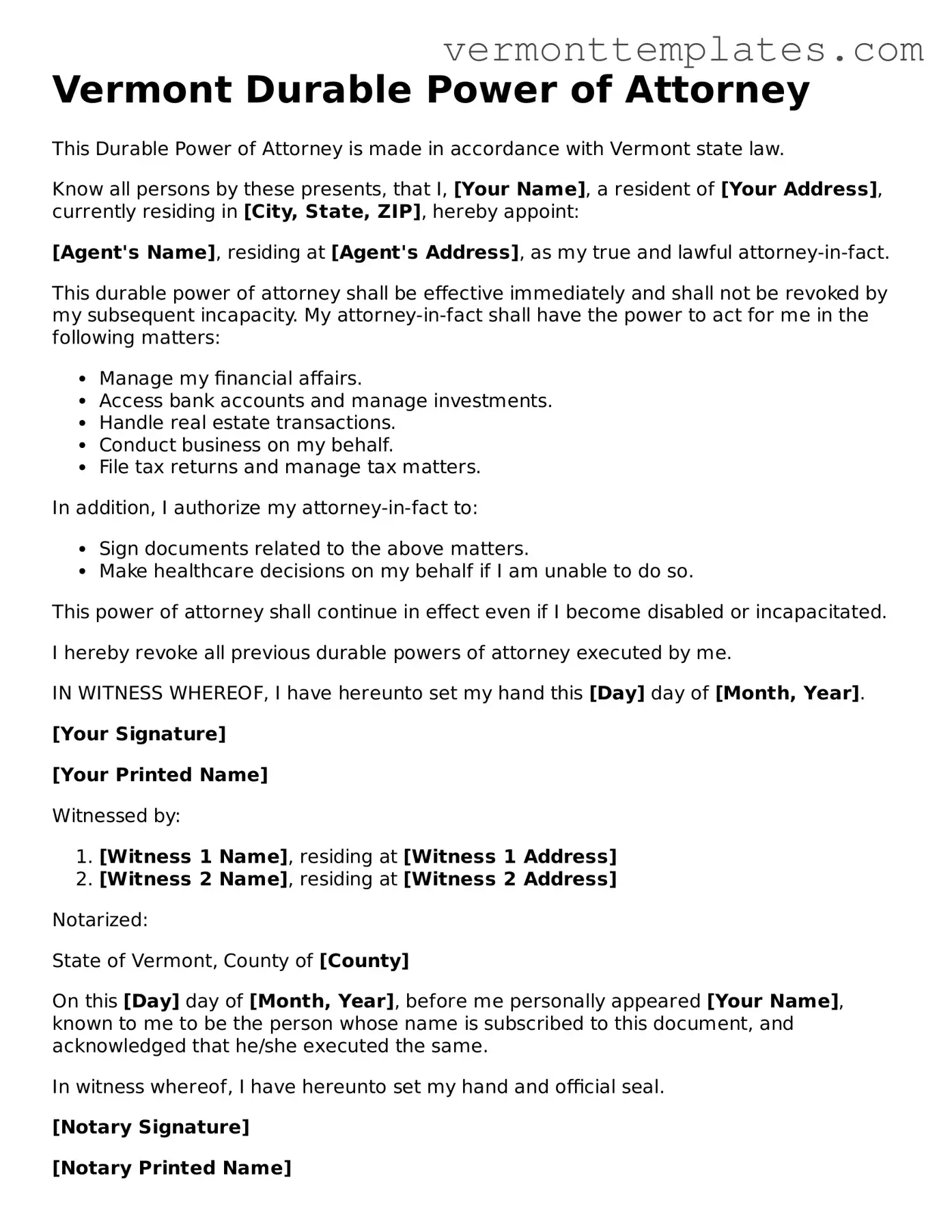Legal Durable Power of Attorney Template for Vermont
The Vermont Durable Power of Attorney form is a legal document that allows an individual, known as the principal, to designate another person, called the agent, to manage their financial and legal affairs. This form remains effective even if the principal becomes incapacitated. Understanding its significance can help ensure that your wishes are respected when you are unable to make decisions for yourself.
Open Durable Power of Attorney Editor

Legal Durable Power of Attorney Template for Vermont
Open Durable Power of Attorney Editor
Complete the form at top speed
Edit, save, and download Durable Power of Attorney online with ease.
Open Durable Power of Attorney Editor
or
⇩ Durable Power of Attorney PDF Form
